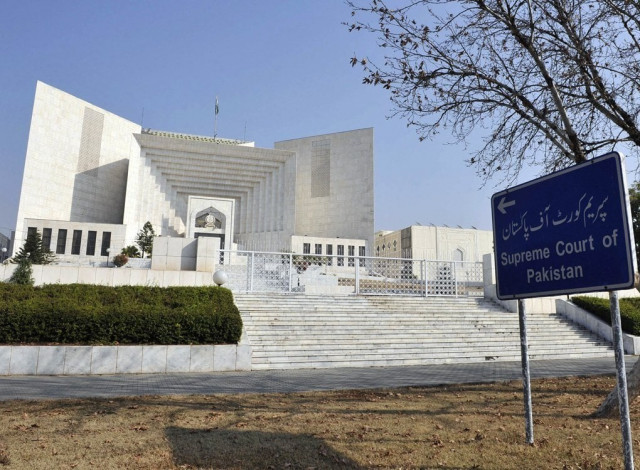SC refuses to entertain plea against lifetime disqualification
Registrar office of the top court returns plea, stating the matter has already been resolved

Supreme Court has refused to entertain the petition filed by the Supreme Court Bar Association (SCBA) challenging the lifetime disqualification of lawmakers under Article 62 (1) (f) of the Constitution.
The SC registrar office has returned the SCBA constitution petition by raising several objections.
It is learnt that the SC office stated that the matter has already been settled by five judges of a larger bench. Likewise, the objection was also raised on the locus standi of the petitioner.
However, the lawyers’ body is now considering moving an appeal against the registrar's objections.
The petition filed by SCBA President Ahsan Bhoon had contended that the disqualification under Article 62 (1)(f) should be applied in cases of an election dispute. It added that the Supreme Court could not proceed as a trial court under the powers of Article 184(3).
Also read: Not a party in plea against lifetime disqualification: Tareen
Article 62(1)(f), which sets the precondition for a member of parliament to be "sadiq and ameen" (honest and righteous), is the same provision under which former prime minister Nawaz Sharif was disqualified by a five-judge SC bench on July 28, 2017, in the Panama Papers case. Similarly, Pakistan Tehreek-i-Insaf (PTI) leader Jahangir Tareen was disqualified by a separate bench of the apex court under the same provision.
In 2018, a five-judge Supreme Court bench unanimously held that disqualification handed down under Article 62-1(f) of the Constitution is for life.
The SCBA petition has requested the top court to declare that the proceedings and declarations under Articles 184(3) or 199 of the Constitution did not constitute declarations by a court of law, as per the principles expounded by it.
Also read: Curtain falls on political careers of Sharif, Tareen
“The apex court, while acting pursuant to Article 184(3) of the Constitution, “exercises extraordinary and original constitutional jurisdiction,” the petition said, adding that it did not act as a trial court where the person “is afforded the right to lead evidence, produce witnesses, and cross-examine the other side’s witnesses and so on”.
It also stated that in addition to the failure to provide an opportunity for cross-examination, proceedings under Article 184(3) were “additionally violative of the principles of due process” and the right to a fair trial, as they precluded the possibility of any kind of appeal.



















COMMENTS
Comments are moderated and generally will be posted if they are on-topic and not abusive.
For more information, please see our Comments FAQ